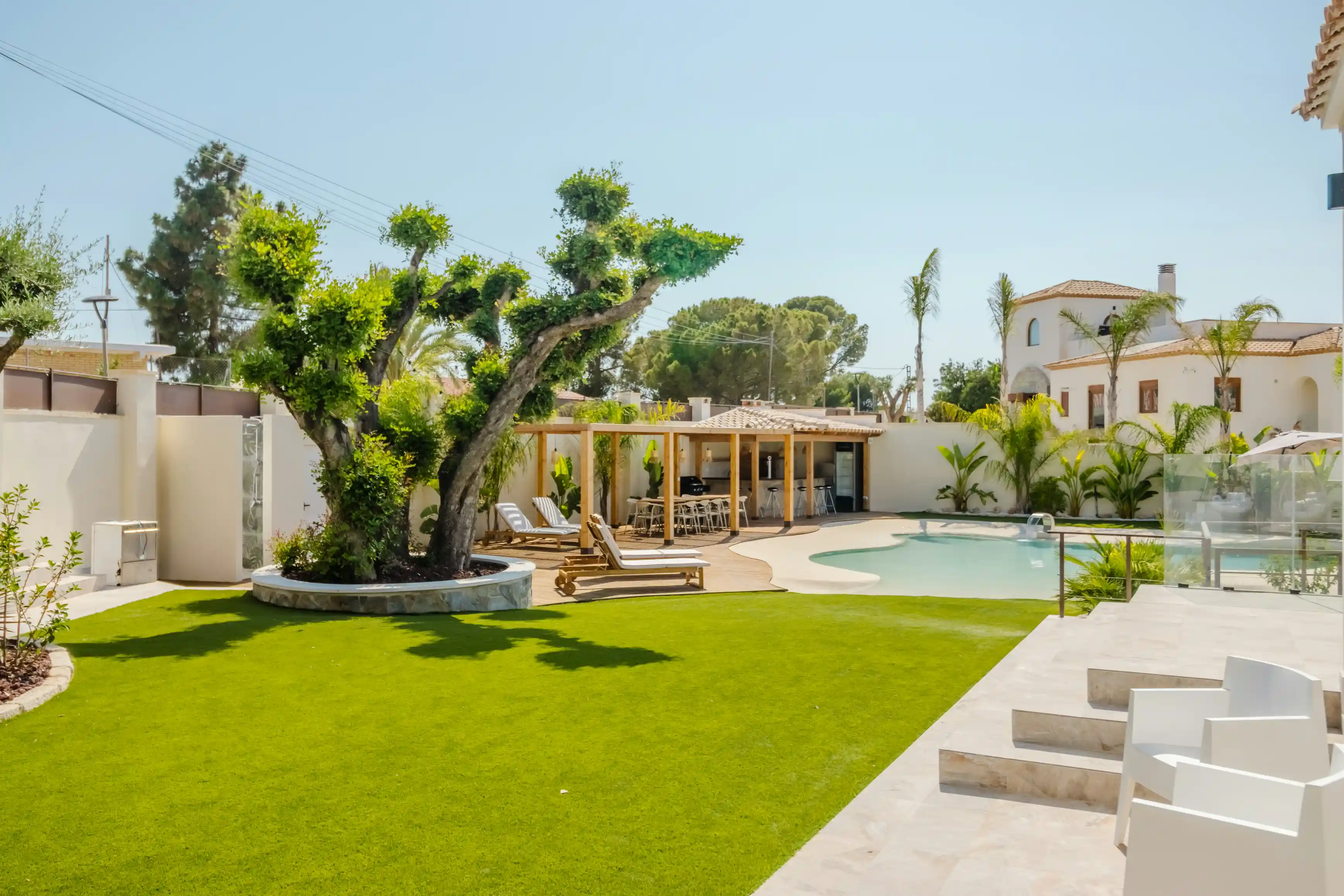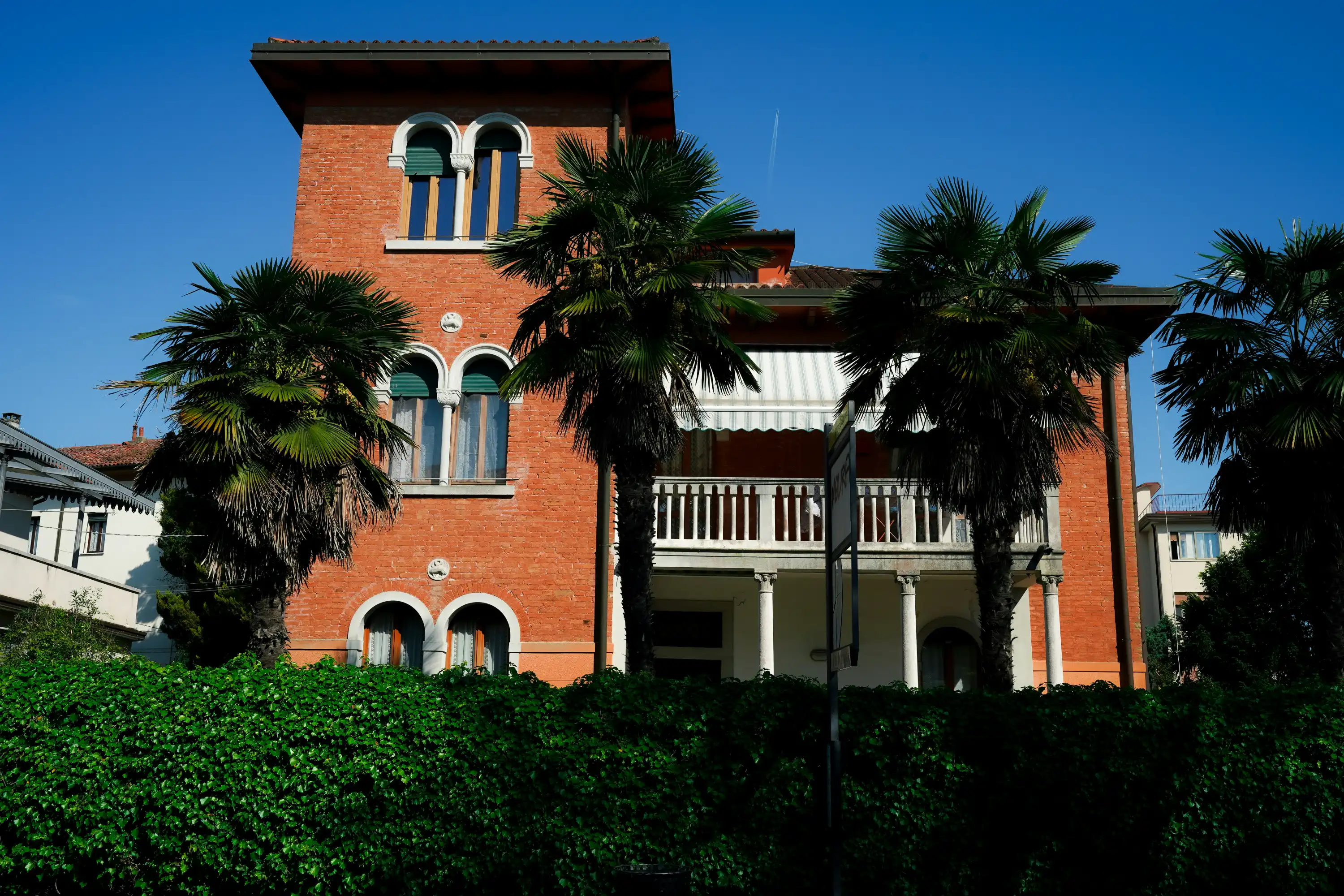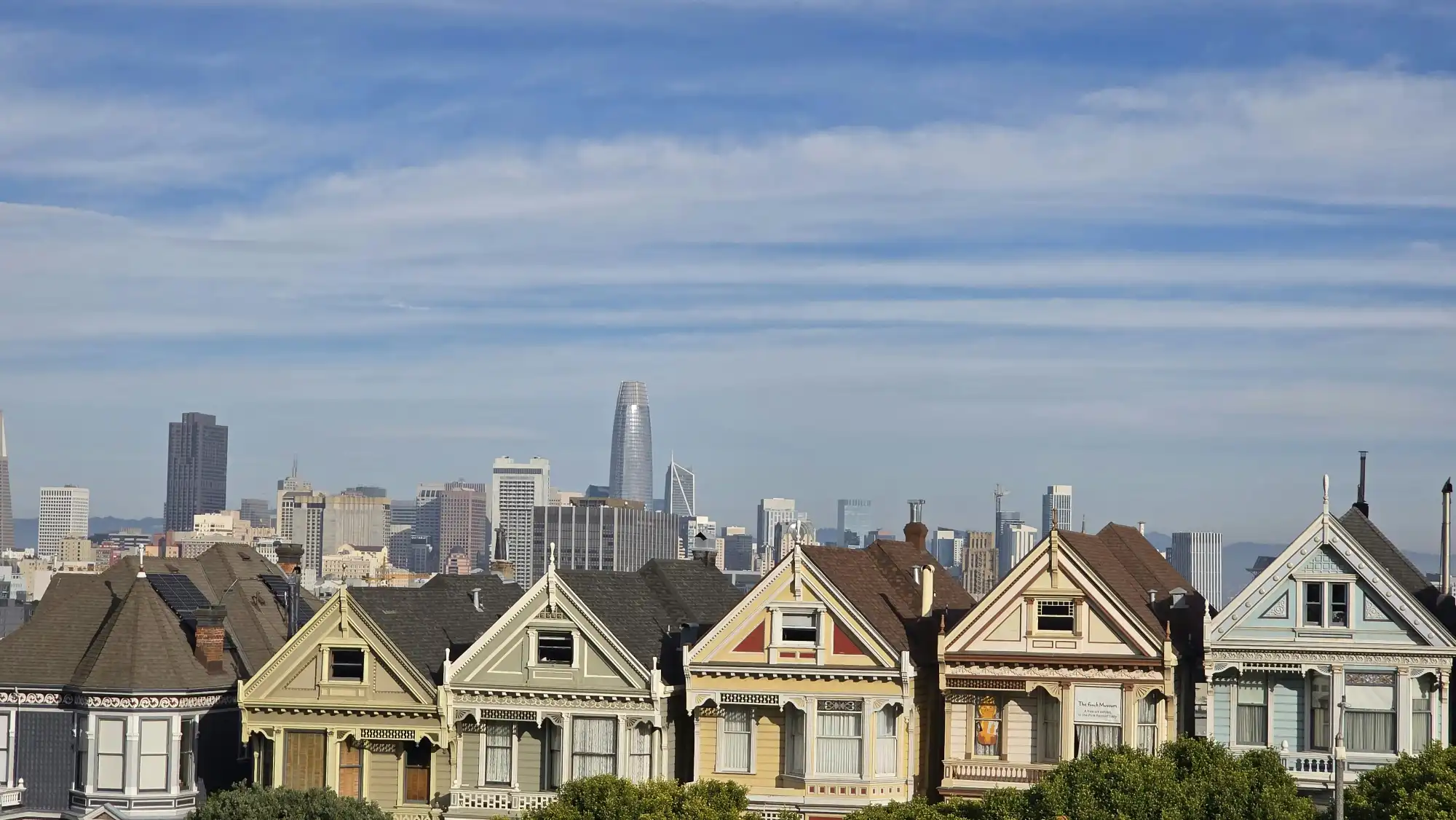Plano, Texas offers a compelling opportunity for short-term rental (STR) investment in the Dallas-Fort Worth metroplex. The city is home to major corporate headquarters like Toyota North America, Frito-Lay, and Liberty Mutual, generating year-round demand from business travelers while attracting families and leisure visitors to its schools, Legacy West district, and proximity to Dallas attractions. With its strategic location in the metro area, Plano properties can tap into the broader Dallas Airbnb revenue potential.
If you're a real estate investor looking to start an Airbnb in Plano, you've found the right resource. This guide will walk you through every critical step, which includes navigating local regulations and calculating profitability to launching your first listing and maximizing returns. For broader market insights on investing in Dallas Airbnb properties, we at Surge have helped countless investors transform Plano properties into profitable, hands-off income streams.
Understanding local market dynamics, regulations, and operational requirements is essential for success. It's not just about listing a spare room; it is about building a legitimate business that generates sustainable returns while staying compliant with all laws and regulations.
Why Invest in a Plano Airbnb?
Plano's investment thesis extends beyond its reputation as a family-friendly suburb. The city has positioned itself as a major corporate hub, creating a dual-demand market that supports premium pricing and high occupancy rates year-round.
The corporate presence in Plano is remarkable. Toyota North America relocated its headquarters here, bringing thousands of employees and creating a ripple effect of supplier relationships, consulting engagements, and business partnerships that generate continuous accommodation needs. JP Morgan Chase, Liberty Mutual, Frito-Lay, and other Fortune 500 companies maintain significant operations in the area, creating a built-in customer base of business travelers who prefer the space, privacy, and amenities of a short-term rental over traditional hotels.
Beyond business travel, Plano attracts diverse leisure visitors. The Legacy West development transformed the area into a destination for dining, shopping, and entertainment, while the city's park system hosts youth sports tournaments that draw families from Texas. Proximity to University of Texas at Dallas adds demand from visiting families, prospective students, and academic travelers.
Key Demand Drivers in Plano:
- Business travelers from major corporations such as Toyota, JP Morgan Chase, and Liberty Mutual
- Visiting families and university-related travel (UT Dallas nearby)
- Youth sports tournaments using Plano's park system
- Guests needing temporary housing during relocation or home renovations
- Weekend getaways for residents of Dallas-Fort Worth seeking suburban tranquility
- Medical tourism related to nearby healthcare facilities
- Extended-stay guests on corporate projects or consulting engagements
The economic fundamentals supporting this demand are compelling. Plano consistently ranks among the wealthiest Texas cities, with household incomes above the national average. This affluent population supports property value appreciation while the diverse demand drivers ensure consistent rental income.
Plano, Texas Short-Term Rental Regulations
Understanding and adhering to Plano TX short-term rental regulations is non-negotiable for building a sustainable, profitable business. The regulatory landscape is evolving, and compliance is the foundation of your operation.
Plano STR Registration and Permit
The City of Plano requires all STR operators to register their properties and obtain permits before accepting bookings. This is a legal requirement with significant penalties for non-compliance.
To obtain your Plano STR permit, submit a complete application with property owner information, a designated local contact person (available 24/7), and proof of liability insurance. The registration process requires detailed property information, including the maximum occupancy you plan to advertise, available parking spaces, and confirmation that the property meets all safety codes.
The registration fee is $150 and must be renewed annually. The city requires current contact information and notification of any changes to your operation, including extended periods when the property won't be available for rental.
A critical requirement that catches new operators off-guard is the local contact person rule. This individual must be available 24/7 and able to respond to the property within 30 minutes. This person can be you, a property manager, or a designated representative, but they must always be reachable and local.
Hotel Occupancy Tax (HOT) Compliance
Hotel Occupancy Tax (HOT) is a significant compliance requirement for rentals shorter than 30 days. The tax is collected from guests and remitted to state and local authorities, and the property owner is responsible for proper collection and remittance.
The tax structure has two components:
- HOT: Texas imposes a 6% tax on gross rental revenue, payable to the Texas Comptroller. While platforms like Airbnb may collect this tax on your behalf, you are responsible for proper payment. You must register with the Texas Comptroller and file regular returns even if a third party is collecting the tax.
- Local HOT: The City of Plano imposes an additional local hotel occupancy tax of 2% on gross rental revenue. This tax must be collected from guests, reported monthly, and remitted to the city by the 20th day of the following month. Unlike the state tax, booking platforms typically do not collect local HOT, making it the owner's responsibility.
Failure to collect, report, or remit HOT can result in penalties, interest charges, and legal action. The tax applies to the total amount charged to guests, including cleaning fees and other charges, with very limited exceptions.
Zoning, Safety, and Operational Rules
Plano's Airbnb rules extend beyond registration and taxation to cover operational aspects impacting your guests' experience and your neighbors' quality of life.
- Occupancy limits are strictly enforced and based on the number of bedrooms plus additional guests in common areas. Most properties allow two guests per bedroom plus two additional guests, but limits may vary based on property size and type. Exceeding posted limits can result in immediate citations and potential permit revocation.
- Parking requirements mandate adequate on-site parking for all guests. Street parking alone is usually insufficient, and you must ensure your guests don't impact neighborhood parking. Properties without sufficient parking may be denied permits or face occupancy restrictions.
- Noise and nuisance regulations are crucial in Plano's family-oriented neighborhoods. Quiet hours are 10 PM to 7 AM, and hosts must ensure guests comply with noise ordinances. Repeated complaints can lead to permit suspension or revocation.
- Safety requirements include functioning smoke detectors in all sleeping areas and common spaces, carbon monoxide detectors as per building codes, and accessible fire extinguishers. Regular testing and maintenance of safety equipment and documentation for inspection are required.
All properties must comply with building codes, maintain proper insurance, and ensure modifications meet city permitting requirements. Pool properties face additional safety and liability requirements, including proper fencing and safety equipment.
Estimating Your Plano Airbnb Profitability
Whether Airbnb is profitable in Plano depends on your property, target market, and operational efficiency. With proper positioning and management, Plano's strong fundamentals and diverse demand create favorable conditions for profitability.
Projecting Your Revenue Potential
- Average Daily Rate (ADR) varies based on property type, location in Plano, and seasonal factors. A 2-bedroom apartment near Legacy West might command $120-160 per night, while a 4-bedroom single-family home in a desirable neighborhood could achieve $200-300+ per night during peak periods. Corporate demand supports higher rates Sunday through Thursday, while leisure travelers are more price-sensitive on weekends.
- The occupancy rate in successful Plano properties ranges from 65-80% annually. It peaks in spring and fall for corporate travel and ideal family visit weather. Summer sees lower occupancy due to Texas heat, while winter holidays generate premium pricing.
- RevPAR (Revenue Per Available Room) combines rate and occupancy into a single metric that sophisticated investors use to evaluate performance. A property achieving $150 ADR at 70% occupancy generates $105 RevPAR, indicating strong market positioning.
Seasonal fluctuations impact revenue potential. Corporate events, the UT Dallas academic calendar, and major Dallas conferences create demand spikes for premium pricing. Understanding and capitalizing on these patterns is crucial for maximizing annual revenue.
Calculating Startup Costs
Initial investment requirements extend beyond property acquisition and can significantly impact your ROI timeline:
- Property Acquisition: Down payment (20-25% for investment properties), closing costs, inspections, and immediate repairs or improvements.
- Professional Design and Furnishing: $15,000-35,000+ depending on property size and market positioning.
- Professional Photography: $500-1,500 for high-quality images that drive bookings
- Permit and Registration Fees: City registration, state tax permits, and required inspections
- Technology Setup: Smart locks, security systems, noise monitoring, and WiFi upgrades
- Initial Supplies and Linens: Complete guest supplies, professional-grade linens, and operational inventory
- Legal and Professional Fees: LLC formation, insurance setup, and initial consultations
The furnishing and design investment deserves attention, as this impacts your ability to command premium rates and maintain high occupancy. Properties with professional, Instagram-worthy design outperform generic approaches by 20-40% in rate and occupancy.
Understanding Your Ongoing Expenses
Understanding and forecasting expenses is crucial for profitable short-term rental operations. Key expense categories include:
- Mortgage/Rent: This is the primary housing cost and will vary significantly based on financing arrangements.
- Utilities: Covering electricity, water, gas, and high-speed internet, these typically account for 6-10% of revenue.
- Cleaning & Turnover: Professional cleaning between guest stays is a significant expense, ranging from 10-15% of revenue.
- Supplies & Amenities: This category includes items like coffee, toiletries, paper goods, and replacements, generally costing 3-5% of revenue.
- Maintenance & Repairs: Covering landscaping, general repairs, pest control, and deep cleaning, these costs are usually 4-8% of revenue.
- Platform Fees: Service fees charged by platforms like Airbnb and VRBO typically range from 3-5% of revenue.
- Taxes & Insurance: This category includes transient occupancy taxes (HOT), property taxes, and short-term rental insurance premiums, which can vary widely.
- Professional Management: For full-service management, fees can range from 15-25% of revenue.
The Texas short-term rental market has shown that properties managed professionally achieve 15-25% higher net revenue despite management fees. This is attributed to better pricing strategies, effective marketing, and increased operational efficiency provided by professional management.
Steps to Launching your Airbnb in Plano, Texas
Launching your Plano Airbnb requires careful attention to each phase, from property selection to your first guest reviews. This approach minimizes delays and ensures immediate success.
Step 1: Property Acquisition or Assessment
The Plano market rewards different property types based on your target guest demographic. Single-family homes in quiet, family-friendly neighborhoods like West Plano or Willow Bend attract visiting families and longer corporate stays. Modern condos or townhomes near Legacy West appeal to business travelers seeking contemporary amenities and easy access to corporate campuses. Properties near major highways (Highway 75, Sam Rayburn Tollway) offer convenience for guests traveling throughout the metroplex. A specialized STR-focused real estate professional can identify properties with optimal revenue potential while avoiding pitfalls like restrictive HOAs or zoning issues.
Step 2: Business and Financial Setup
Establishing a proper business structure protects your personal assets and simplifies tax management. Most investors choose LLC formation for liability protection and tax flexibility. Open a dedicated business bank account immediately to maintain clear separation between personal and business finances, which is crucial for tax purposes and professionalism in legal or regulatory scrutiny. Consult a CPA who understands STR taxation, as the implications can be complex and vary based on your investment strategy.
Step 3: Design, Furnishing, and Staging
This phase represents your largest controllable impact on revenue potential. Professional design isn't luxury spending; it's revenue optimization. Properties with cohesive, professionally designed interiors photograph better, attract more bookings, justify higher rates, and generate better guest reviews that improve long-term platform ranking.
Successful Plano properties feature durable, attractive furniture for frequent turnover, comfortable beds with hotel-quality linens, fully equipped kitchens for extended-stay guests, and local design elements. Guests expect "Instagram-worthy" spaces, and properties that deliver command significant rate premiums.
Professional interior design and furnishing services create a competitive advantage. They ensure your property stands out in a crowded marketplace while avoiding costly furnishing mistakes that damage guest satisfaction.
Step 4: Professional Photography
Your most important marketing investment is high-quality photography, as photos drive booking decisions. Professional photographers know how to showcase your space's best features, use proper lighting and angles, and create images that convert browsers into bookers. The investment pays for itself within the first few bookings through improved conversion rates.
Step 5: Crafting Your Online Listing
Your listing title and description must communicate your property's unique value proposition. Based on your target market, highlight proximity to major employers, family-friendly amenities, or business traveler conveniences. Include details about WiFi speeds, workspace availability, parking, and special amenities. Local knowledge matters; mentioning nearby restaurants, attractions, and conveniences helps guests envision their stay.
Step 6: Setting Your Pricing Strategy
Dynamic pricing requires market analysis, competitor monitoring, and demand forecasting. Successful operators adjust rates based on local events, seasonal patterns, weekday vs. weekend demand, and booking lead time. This complexity is why many investors rely on professional management with advanced pricing technology instead of manual rate management.
Step 7: Finalize Compliance and Go Live
Complete your final compliance checklist: confirm city registration, activate insurance, complete HOT registration, install and test safety equipment, and ensure smart lock and security systems are operational. Schedule your first professional cleaning and stock guest supplies. Once everything is configured, activate your listings and accept bookings.
The turnkey Airbnb investment Texas approach consolidates these steps under professional management. This allows investors to benefit from expertise and efficiency while maintaining a truly passive investment experience.
Why Professional Management is Key to Success in Plano
Many investors consider self-managing their Plano Airbnb to maximize returns. However, the reality of short-term rental operations reveals the complexity and time commitment required for success. Self-management often becomes a demanding second job rather than passive income due to the need for guest communications, pricing optimization, cleaning coordination, maintenance, and regulatory compliance.
Professional vacation rental management in Plano transforms your investment from active ownership to passive income. The demands of successful STR management, which include 24/7 guest support, dynamic pricing, quality control, and marketing, require expertise and systems that individual owners cannot match.
Consider the late-night maintenance calls, last-minute booking changes, guest disputes, and the need to monitor and adjust pricing based on market conditions. Successful properties require immediate responsiveness to guest needs, proactive maintenance scheduling, and sophisticated revenue management that adapts to local events, seasonal patterns, and competitive dynamics.
What Full-Service Management with Surge Includes:
- Maximized Revenue: We use dynamic pricing technology and local market expertise to optimize rates daily, ensuring peak pricing during high-demand periods while maintaining competitive rates for consistent bookings.
- 24/7 Guest Experience Management: Our team handles all guest communication, from initial inquiry to post-stay follow-up, providing immediate responses that improve booking conversion and guest satisfaction scores that boost your property's ranking.
- Flawless Operations: We manage vetted teams of professional cleaners, maintenance staff, and suppliers to keep your property pristine and respond immediately to guest issues.
- Expert Marketing and Distribution: Your property receives optimized listings across major booking platforms (Airbnb, VRBO, Booking.com) with professional photography, compelling descriptions, and strategic positioning that maximizes visibility and booking conversion.
- Complete Compliance Management: We handle all aspects of regulatory compliance, protecting your investment and ensuring uninterrupted operations. This includes permit renewals, tax reporting, guest screening, and operational rule adherence.
- Comprehensive Reporting: Monthly financial reports provide complete transparency into your property's performance, including revenue analysis, expense tracking, and market positioning insights for long-term strategy.
The integrated approach distinguishes Surge from typical management companies. As a comprehensive real estate brokerage, interior design firm, and full-service management company, we handle every aspect of your STR investment from acquisition to operations. This turnkey Airbnb investment Texas solution eliminates the complexity and coordination challenges of working with multiple vendors while ensuring all aspects of your investment work together seamlessly.
Conclusion
Starting an Airbnb in Plano represents a significant business opportunity. Success requires more than just listing a property online. Strong corporate demand, diverse guest demographics, and favorable market conditions create excellent potential for strategic and professional investors.
Successful Plano STR investors know that partnering with experienced professionals maximizes returns. Professional management, design, and operational expertise generate higher net returns than self-managed properties while providing the passive income experience most investors desire.
FAQs
What insurance do I need for an Airbnb in Plano?
Standard homeowner's insurance policies exclude coverage for commercial activities like short-term rentals, leaving you unprotected against liability claims or property damage. You'll need specialized STR insurance or a landlord policy that covers short-term rental activities. These policies cost more than standard coverage but provide protection against guest injuries, property damage, and liability claims. We work with insurance providers specializing in short-term rental coverage and understand the unique risks and requirements of the STR business.
Can I Airbnb my apartment or condo in Plano?
This depends on your lease agreement (if renting) and your HOA's rules (if you own). Most apartments and many HOAs prohibit short-term rentals due to security, noise, and liability concerns. Even if your lease or HOA documents don't address STRs, broader restrictions on commercial activities or subletting may apply. You must obtain written permission from your landlord and verify HOA compliance before investing in STR setup. Violating lease terms or HOA restrictions can result in immediate termination or substantial fines.
How long does it take to set up an Airbnb in Plano?
The timeline varies based on your starting point and approach. If you own a suitable property, the setup process including permits, design, furnishing, photography, and listing takes 6-10 weeks. Properties needing significant improvements or renovations may take 3-6 months or longer.
New property acquisition adds time for search, due diligence, financing, and closing processes. Our turnkey approach minimizes the timeline while ensuring every detail is handled, allowing you to start generating revenue quickly and avoid costly shortcuts that impact long-term success.





